Bored of searching through hours of irrelevant resumes? You’re not alone. Today, recruiters are under extreme pressure to find and hire better, faster, and more efficiently than ever before—and traditional shortlisting methods just don’t cut it anymore.
This is where AI in candidate shortlisting is completely changing the game.
In the current market where job applications overpower hiring teams, Artificial Intelligence makes it easier for recruiting professionals. This is done by enabling them to quickly shortlist candidates by automating the resume screening process, skill identification, and job fit prediction. A Harvard Business Review report found that organizations taking advantage of artificial intelligence in their recruiting process see 46% more wins for their business. That’s not an increment, that’s a game-changer.
In this blog, we’ll take a closer look at what AI in recruitment means for companies, how it reduces unconscious bias, enhances hiring accuracy, and why it has become indispensable in today’s competitive talent market.
What Is AI-Powered Candidate Shortlisting?
AI in Candidate screening is the practice of utilizing artificial intelligence to automatically screen, rank, and recommend job candidates whose qualifications best match the job demand. AI tools not only save recruiters the time it takes to read each resume manually, but they also help them to find top candidates faster and more accurately.
These technologies utilize Natural Language Processing (NLP), Machine Learning Algorithms, and data analytics to scan resumes and match keywords against job descriptions. They also analyze soft skills and even predict and measure cultural fit.
Say you’re looking to hire a front-end developer, and you’ve gotten more than 500 applications for the role.
Rather than getting bogged down in every application, your AI-fueled ATS (Applicant Tracking System) can read through applications in seconds. It seeks out specific skills like React. JS, Vue. JS and JavaScript consider the candidate’s years of experience, education, and previous job titles — even accomplishments or GitHub activity (if you can find it). For instance, our ATS platform, RecruitEase Pro, helps companies make their hiring process easier.
Minutes later, the system delivers a shortlist of the top 20 best-qualified candidates — not just in terms of technical qualifications, but in terms of how well they align with the values and work style of your company (based on data about which candidates your company has hired in the past).
Now you have a shortlist of highly relevant data — and it took you seconds, not hours.
Quick Read: How To Implement AI In Your Workplace?
How AI in Candidate Shortlisting Works?
Have you ever wondered how AI recruitment tools can immediately identify your potential candidates from hundreds of applications in no time? AI shortlisting converts a traditional screening process into a faster, more intelligent, and more accurate tool that is cost-effective, time-efficient, and leads to better hiring practices. Here’s a step-by-step look at how it works:
- Intelligent Data Collection
AI in candidate shortlisting works by intelligently collecting data through different AI tools, which start by extracting data from various sources — resumes, cover letters, applications, LinkedIn profiles, and even pre-screening assessments. This allows for not missing any candidate’s interesting information.
- Advanced Skill and Context Analysis
Then the system employs Natural Language Processing (NLP) to learn more about the context of the experience for each candidate, rather than simply matching keywords. For instance, it will not merely search for “project management” — it will check to see if the candidate managed projects, worked across functions, and managed budgets.
- Intelligent Scoring And Relevance Ranking
AI works for intelligent scoring and relevance ranking for every individual in the hiring process. Every applicant is reviewed and scored dynamically based on how well their profile matches the job. AI takes into account hard skills (Python, sales strategy) and soft skills (leadership, problem-solving), and ranks candidates accordingly, delivering the best-fitting profiles to your hiring team.
- Actionable Shortlists Generation
The system then returns a curated shortlist of top candidates, enhanced with relevant insight like fit probability, skill gaps, or performance predictions — it helps recruiters consistently make confident, data-driven hiring decisions without the fear of second-guessing.
- Learning from Every Hire
AI doesn’t end with candidate shortlisting. It’s built on the intelligence gathered from recruiter feedback on hires, as well as constantly changing job market trends, to evolve its recommendations. The more you use it, the smarter and more tailored it gets.
Benefits of Using AI in Candidate Shortlisting
AI in candidate shortlisting makes hiring easier and faster. It helps you quickly find top talent without missing great candidates. By reducing bias and saving time, AI lets you focus on connecting with the best people for the job.
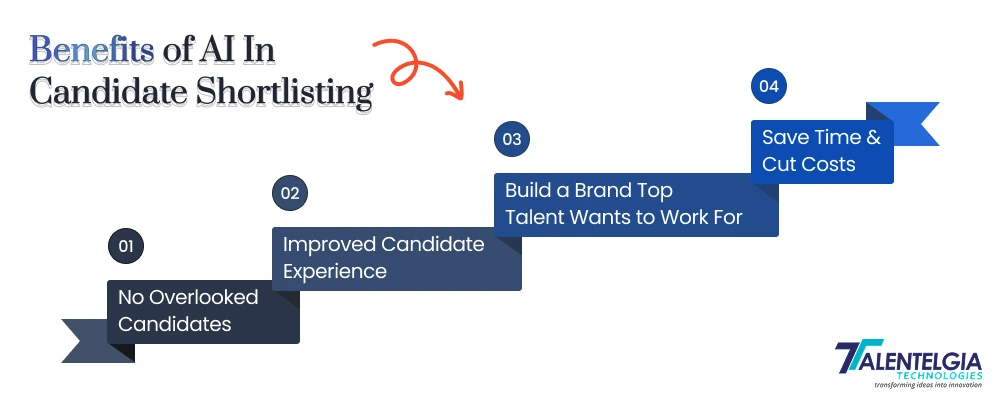
- No Overlooked Candidates
Strong candidates are frequently screened out in traditional hiring processes merely because they do not use the “right” keywords. Although job hunters today are doing a better job at optimizing their resumes with industry-related keywords to be found, old-style resumes or language that fails to promote relevant skills or experience can still slip through the cracks.
This is where AI-based candidate shortlisting presents a game-changing opportunity.
Rather than matching keywords, AI hiring platforms take in resumes holistically, noting relevant competencies, achievements, and trends indicative of a strong match, regardless of whether certain buzzwords happen to appear. By looking at context and general fit, AI makes sure that these top candidates are never overlooked.
The result? A smarter, fairer, more effective hiring experience that makes it easier to discover great talent, not just the people who are best at writing resumes.
- Improved Candidate Experience
Let’s be real — no one enjoys being in the dark, particularly when you apply for a job. Today’s candidates are seeking more than a paycheck — they want clarity, communication, and respect throughout the hiring process.
And they’re not wrong. In reality, almost 58% of candidates reject offers due to the negativity of their candidate experience. Even more surprising? 76% believe not hearing back after an interview is worse than being ghosted on a first date.
That’s where AI can come in and make a new difference. With gifts such as automated emails, smart chatbots, you can better keep candidates in the loop, without adding more work for your HR team. It’s a small but clear way for people to feel seen, and that changes everything.
- Build a Brand Top Talent Wants to Work For
When it comes to talent, your employer brand isn’t just a nice-to-have; it’s a deal breaker. 80% of recruiters say a strong employer brand plays a significant role in their ability to attract top candidates, according to LinkedIn. And a bad reputation may increase your hiring costs at least 10 percent per hire, according to Harvard Business Review.
So, how do you make sure you’re that company? That’s where AI can have a big impact. Whether that means faster communication, creating more personalized candidate journeys, or reducing your hiring time and cost, AI-powered recruitment isn’t just about making your process better; it’s about making your brand look smarter, faster, and more human.
By showing candidates that your organization enlists state-of-the-art technology to value their time and experience, you aren’t just filling positions — you are solidifying a reputation.
- Save Time & Cut Costs
Recruiters spend up to 23 hours simply screening and filtering resumes for one job — a huge chunk of which is devoted to reviewing applications from unqualified candidates. Indeed, research indicates 75%-88% of resumes that get thrown at most job postings fail to meet the basic requirements. Factor in the manual input and tracking that takes up approximately 40% of a recruiter’s day, and it’s not hard to see how outdated hiring practices can be incredibly inefficient (Forbes).
AI simplifies all of that. With intelligent automation of repetitive, low-value tasks such as resume screening, application tracking, and shortlisting, undertaken at speeds of seconds rather than hours, and without the risk of human error, the workload is slashed, and hiring processes can be ramped up significantly. This allows recruiters to concentrate on what matters, being top talent and great teams.
And there’s an even larger effect, which includes quicker hiring, leads to less time wasted when a role isn’t filled, and less stress on an overworked team. Companies that let AI do the heavy lifting can scale resources, keep overhead at a minimum, and make smarter decisions more quickly.
Why Use AI in Candidate Shortlisting?
Modern recruitment uses AI in candidate shortlisting because it demands faster decisions, fairer processes, and better candidate experiences, and AI hiring tools make all of that possible. Let’s break down why AI in hiring is quickly becoming an essential tool in every recruiter’s toolkit:
- Issues In Conventional Candidate Screening
On top of that, hiring is evolving at an increasingly rapid pace, which leaves the old way of screening resumes as nothing short of outdated. Manually sifting through dozens and dozens of resumes is tiring, and easy to overlook someone who should have been considered. Loose procedures for many interviews and subjective judgments also decrease the likelihood of a good fit. They tend to be 60% better at predicting job performance than unstructured interviews, and yet, for some reason, much of the hiring world persists in using interview methods that are out of date.
And then there’s the question of bias. Human evaluators, aware or not, tend to favor names, experiences, or demographics they are familiar with without even necessarily meaning to, and this can compromise diversity and fairness. No clear hiring framework and hiring becomes inconsistent, and you lose top people all too easily.
- Application Overload Is Real
With job application rates tripling between 2021 and 2023, recruiters are now drowning in resumes, especially within the first week of a job posting when applicant numbers are at their peak. This overwhelming volume not only slows down the hiring process but also causes burnout among recruitment teams. 60% of employers reported increased time-to-hire in 2024, which often leads to higher candidate drop-offs and missed opportunities.
Enter AI: your time-saving, stress-reducing hiring partner. By automating resume screening and pre-qualifying candidates, AI hiring tools can cut hiring times dramatically.
Just look at L’Oréal, which reduced its time-to-hire by 33% using an AI-powered chatbot—all while keeping candidate satisfaction high.
- The Future Is Fair, Just, and Data-Driven
Artificial Intelligence brings neutrality in recruitment. Because resume analysis is based solely on skills, qualifications, and role relevance, AI eliminates any guesswork and prejudice that sometimes creep in when humans make judgments. The blind hiring features mean that every candidate gets a fair chance, no matter where they come from or who they are.
But wait, there’s more. AI uses huge datasets to give predictive insights on which candidates have the best houses or are most likely to stay in the house. This data-centric approach drives better hiring decisions, greater retention, and smarter long-term workforce planning. For recruiters, it’s a win-win: hire quicker, hire fairer, and hire better.
Challenges Of AI In Candidate Shortlisting
Artificial intelligence tools for hiring are changing recruiting to recruiting automation software for making it faster and more precise. But as companies rely ever more heavily on this AI technology, it’s important to see past the convenience. Many problems remain to be solved—from data privacy to fairness in candidate evaluation. Here are five key considerations for HR teams that they face as challenges of AI in shortlisting candidates:
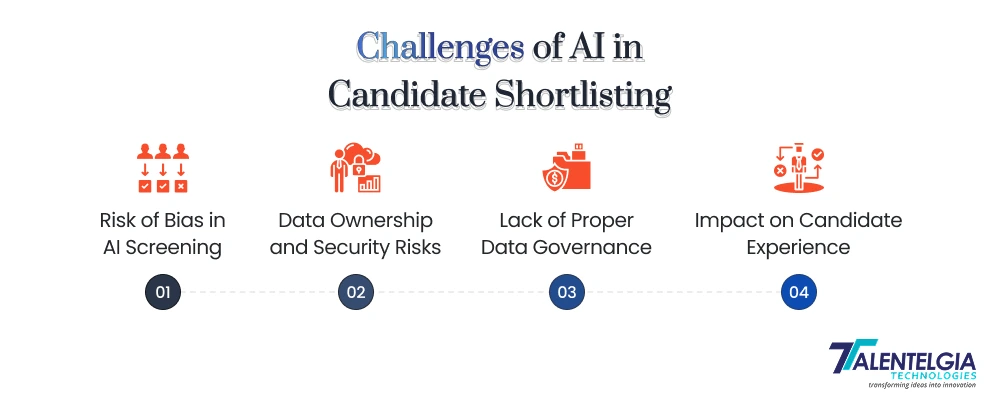
- Risk of Bias in AI Screening
Artificial intelligence recruitment tools are supposed to remove human bias, but if not coded or used properly, they can end up exacerbating it. Because most AI systems train on data that was created for other tasks, and if that data includes biased patterns, then the AI system will learn those patterns and replicate them.
For instance, a screening tool might inadvertently elevate resumes from candidates who attended a certain list of colleges or who have life experiences that mirror those of only a particular demographic. This can cause otherwise qualified candidates to be discriminated against for reasons that have little or nothing to do with their abilities.
To combat this, businesses need to be asking critical questions of their AI vendors around how the solution was trained, how it detects bias, and whether the AI hiring tools can transparently explain their decisions. The aim is not simply to make faster decisions, but fairer ones.
- Data Ownership and Security Risks
Recruiting is an inherently data-driven business, from resumes to internal job analytics, recruiters deal with a lot of sensitive data. Once this data is input into third-party AI technologies, even more questions emerge: Who has ownership over this data? Where is it stored? Who else can access it?
Some organizations may not even realize that their proprietary data is being used to train larger AI models, possibly not with their full consent or transparency. This has some real stakes around data control, competitive exposure, and legal responsibility.
HR executives need to be certain that they have well-defined contracts with vendors about how data will be used, where it will be stored, and how it will be protected. Data is a treasure, and protecting it is a team sport between HR, IT, legal, and vendor teams.
- Lack Of Proper Data Governance
As powerful as AI recruitment platforms can be, they’re still a relatively new technology in the HR world. Many companies haven’t yet embedded AI governance into their policies, which can lead to unintended compliance risks.
HR departments often manage extremely sensitive data, including background checks, interview notes, and assessments. Without strong governance, there’s a risk of mismanaging data or using it in ways that don’t align with legal or ethical standards.
To avoid this, organizations need a unified framework involving HR, cybersecurity leaders, legal counsel, and data officers. Together, they can ensure the responsible and compliant use of AI hiring tools across the entire lifecycle.
- Impact on Candidate Experience
AI recruitment tools like chatbots can help HR and hiring managers with communication during the hiring process, but they should be deployed with caution. More candidates place importance on genuine human interaction, particularly when it comes to decisions about their careers.
Some prospective candidates may not be comfortable engaging with a bot and would rather have a conversation with a recruiter to learn more about company culture or job requirements. And it can sow confusion or distrust if candidates aren’t given clear information about where and how AI is being used.
Finding the balance between automation and empathy is key. AI can handle and automate the grind, as well as quickly update, but it should never replace an authentic exchange or the human touch of a strong employer brand.
Top AI Tools For Candidate Shortlisting
Hiring the right candidate quickly can make all the difference for your team. With AI in candidate shortlisting, recruiters now have smart AI tools to find top talent faster. Here are some of the best AI tools you can use to simplify and speed up your hiring process.
HireVue
HireVue is an AI-powered hiring platform that streamlines recruitment through resume screening, game-based assessments, structured video interviews, and virtual job simulations. It helps organizations reduce bias, save time, and make data-driven hiring decisions at scale.
Problem:
As application volumes surged, tripling between 2021 and 202,3, organizations found themselves overwhelmed with resumes, especially during the first week of a job posting. Traditional screening methods began to show their limitations.
Recruiters were spending countless hours manually reviewing applications, often leading to delays, unconscious bias, inconsistent evaluations, and the potential loss of qualified candidates. This created an urgent need for a faster, fairer, and more scalable approach to identifying top talent—one that could streamline the hiring process without compromising on quality.
Solution:
HireVue aimed to facilitate the digital transformation of candidate selection at scale for global organisations with AI-based automation. Here’s how it worked:
- AI-Powered Resume Screening
Algorithms from HireVue search resumes for fit based on role requirements, qualifications, and experience, surfacing the most qualified candidates. This took all of the guesswork and subjective filtering out of the equation.
- Game-Based Assessments
For positions where soft skills and leadership potential are of value, game-based psychometric tests provided a further level of insight, sorting candidates based on cognitive ability, behavioural characteristics, and decision-making.
- Structured Video Interviews
Pre-designed interview templates from I-O psychologists let hiring teams ask consistent, job-related interview questions. Answers were auto-scored and infused with Pre-selection to save time and minimize bias.
- Virtual Job Tryouts
Such job simulations allow candidates to engage in industry-specific challenges and enable recruiters to gauge actual performance. It was more informative in terms of final short-list decisions.
Results
- 89% faster time-to-hire
- $667K annual cost savings
- 80% diversity satisfaction
- 50/50 gender hiring split
Pymetrics
Pymetrics is a neuroscience-driven hiring tool that uses gamified assessments to evaluate candidates based on cognitive and emotional traits, beyond just resumes. It leverages ethical AI to reduce hiring bias and improve match quality through data-backed behavioral insights.
The Problem
Traditional hiring is flawed:
- 70% of hires underperform
- Resume reviews show 50–67% bias
- 83% of candidates rate their experience as poor
The Solution
Pymetrics applies neuroscience-based, gamified tests to evaluate candidates across focus, memory, emotional characteristics, and cognition, not just what’s on their résumés.
Key innovations include:
- Unbiased neuroscience games for candidate assessment
- AI trained on the best of the best to tailor shortlisting
- Ethical, auditable algorithms through Audit-AI.
- Universal application system to redirect the rejected talents to more suitable roles in other companies
The Results
- Objective candidate shortlisting with behavioral data
- Reduced bias in gender, race, and ethnicity
- Higher quality matches and better candidate guidance
- Actionable hiring insights for talent strategy.
SeekOut
SeekOut is an AI-driven talent acquisition platform that offers access to over 800M enriched profiles and precision shortlisting. It combines sourcing, internal mobility, and automated outreach to help recruiters find high-quality candidates faster, while keeping human expertise in the loop.
The Problem
- Traditional sourcing isn’t surfacing quality talent anymore.
- Recruiters are overwhelmed with applications, yet still struggle to find the right fit.
- Disconnected HR tools slow down hiring and drain resources.
- One bad hire can cost up to 30% of their annual salary.
The SeekOut Solution
SeekOut tackles broken hiring systems with a unified AI-powered platform built for precision shortlisting.
- AI-matching that prioritizes candidate quality over volume
- Access to 800 M+ enriched profiles across external and internal talent pools
- Deep filters & automated outreach for quick targeting
- Sourcing + mobility in one place, so you hire & plan future talent at once
- Human-in-the-loop recruiting for accuracy + expertise
Business Impact
- Reduced time-to-hire with smarter search
- Higher quality shortlists with better-fit talent
- Streamlined tech stack that cuts manual work
- Stronger candidate experience through fast, focused engagement
Conclusion
Thus, as the talent landscape grows more competitive, AI-powered candidate shortlisting tools are no longer a luxury—they're a necessity for modern recruitment teams. From automated resume screening and bias-free hiring algorithms to game-based assessments and AI-driven talent sourcing, these tools bring speed, objectivity, and scale to the hiring process.
Platforms like HireVue, Pymetrics, and SeekOut are redefining what’s possible in talent acquisition by reducing time-to-hire, increasing diversity, and improving candidate quality—all while enhancing the overall recruitment experience.
But while AI hiring tools can optimize hiring at scale, success still depends on responsible implementation. HR leaders must prioritize data governance, ethical AI use, and candidate transparency to ensure fairness, compliance, and trust. Whether you're a recruiter overwhelmed by application volume or an HR strategist planning future talent pipelines, embracing AI in recruitment is the next step toward building a smarter, faster, and more inclusive workforce.


 Healthcare App Development Services
Healthcare App Development Services
 Real Estate Web Development Services
Real Estate Web Development Services
 E-Commerce App Development Services
E-Commerce App Development Services E-Commerce Web Development Services
E-Commerce Web Development Services Blockchain E-commerce Development Company
Blockchain E-commerce Development Company
 Fintech App Development Services
Fintech App Development Services Fintech Web Development
Fintech Web Development Blockchain Fintech Development Company
Blockchain Fintech Development Company
 E-Learning App Development Services
E-Learning App Development Services
 Restaurant App Development Company
Restaurant App Development Company
 Mobile Game Development Company
Mobile Game Development Company
 Travel App Development Company
Travel App Development Company
 Automotive Web Design
Automotive Web Design
 AI Traffic Management System
AI Traffic Management System
 AI Inventory Management Software
AI Inventory Management Software
 AI Software Development
AI Software Development  AI Development Company
AI Development Company  AI App Development Services
AI App Development Services  ChatGPT integration services
ChatGPT integration services  AI Integration Services
AI Integration Services  Generative AI Development Services
Generative AI Development Services  Natural Language Processing Company
Natural Language Processing Company Machine Learning Development
Machine Learning Development  Machine learning consulting services
Machine learning consulting services  Blockchain Development
Blockchain Development  Blockchain Software Development
Blockchain Software Development  Smart Contract Development Company
Smart Contract Development Company  NFT Marketplace Development Services
NFT Marketplace Development Services  Asset Tokenization Company
Asset Tokenization Company DeFi Wallet Development Company
DeFi Wallet Development Company Mobile App Development
Mobile App Development  IOS App Development
IOS App Development  Android App Development
Android App Development  Cross-Platform App Development
Cross-Platform App Development  Augmented Reality (AR) App Development
Augmented Reality (AR) App Development  Virtual Reality (VR) App Development
Virtual Reality (VR) App Development  Web App Development
Web App Development  SaaS App Development
SaaS App Development Flutter
Flutter  React Native
React Native  Swift (IOS)
Swift (IOS)  Kotlin (Android)
Kotlin (Android)  Mean Stack Development
Mean Stack Development  AngularJS Development
AngularJS Development  MongoDB Development
MongoDB Development  Nodejs Development
Nodejs Development  Database Development
Database Development Ruby on Rails Development
Ruby on Rails Development Expressjs Development
Expressjs Development  Full Stack Development
Full Stack Development  Web Development Services
Web Development Services  Laravel Development
Laravel Development  LAMP Development
LAMP Development  Custom PHP Development
Custom PHP Development  .Net Development
.Net Development  User Experience Design Services
User Experience Design Services  User Interface Design Services
User Interface Design Services  Automated Testing
Automated Testing  Manual Testing
Manual Testing  Digital Marketing Services
Digital Marketing Services 
 Ride-Sharing And Taxi Services
Ride-Sharing And Taxi Services Food Delivery Services
Food Delivery Services Grocery Delivery Services
Grocery Delivery Services Transportation And Logistics
Transportation And Logistics Car Wash App
Car Wash App Home Services App
Home Services App ERP Development Services
ERP Development Services CMS Development Services
CMS Development Services LMS Development
LMS Development CRM Development
CRM Development DevOps Development Services
DevOps Development Services AI Business Solutions
AI Business Solutions AI Cloud Solutions
AI Cloud Solutions AI Chatbot Development
AI Chatbot Development API Development
API Development Blockchain Product Development
Blockchain Product Development Cryptocurrency Wallet Development
Cryptocurrency Wallet Development About Talentelgia
About Talentelgia  Our Team
Our Team  Our Culture
Our Culture 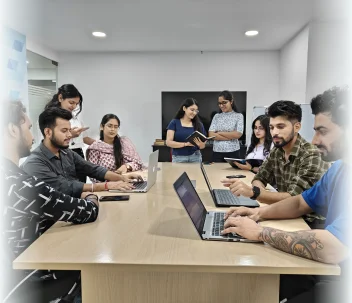
 Healthcare App Development Services
Healthcare App Development Services Real Estate Web Development Services
Real Estate Web Development Services E-Commerce App Development Services
E-Commerce App Development Services E-Commerce Web Development Services
E-Commerce Web Development Services Blockchain E-commerce
Development Company
Blockchain E-commerce
Development Company Fintech App Development Services
Fintech App Development Services Finance Web Development
Finance Web Development Blockchain Fintech
Development Company
Blockchain Fintech
Development Company E-Learning App Development Services
E-Learning App Development Services Restaurant App Development Company
Restaurant App Development Company Mobile Game Development Company
Mobile Game Development Company Travel App Development Company
Travel App Development Company Automotive Web Design
Automotive Web Design AI Traffic Management System
AI Traffic Management System AI Inventory Management Software
AI Inventory Management Software AI Software Development
AI Software Development AI Development Company
AI Development Company ChatGPT integration services
ChatGPT integration services AI Integration Services
AI Integration Services Machine Learning Development
Machine Learning Development Machine learning consulting services
Machine learning consulting services Blockchain Development
Blockchain Development Blockchain Software Development
Blockchain Software Development Smart contract development company
Smart contract development company NFT marketplace development services
NFT marketplace development services IOS App Development
IOS App Development Android App Development
Android App Development Cross-Platform App Development
Cross-Platform App Development Augmented Reality (AR) App
Development
Augmented Reality (AR) App
Development Virtual Reality (VR) App Development
Virtual Reality (VR) App Development Web App Development
Web App Development Flutter
Flutter React
Native
React
Native Swift
(IOS)
Swift
(IOS) Kotlin (Android)
Kotlin (Android) MEAN Stack Development
MEAN Stack Development AngularJS Development
AngularJS Development MongoDB Development
MongoDB Development Nodejs Development
Nodejs Development Database development services
Database development services Ruby on Rails Development services
Ruby on Rails Development services Expressjs Development
Expressjs Development Full Stack Development
Full Stack Development Web Development Services
Web Development Services Laravel Development
Laravel Development LAMP
Development
LAMP
Development Custom PHP Development
Custom PHP Development User Experience Design Services
User Experience Design Services User Interface Design Services
User Interface Design Services Automated Testing
Automated Testing Manual
Testing
Manual
Testing About Talentelgia
About Talentelgia Our Team
Our Team Our Culture
Our Culture
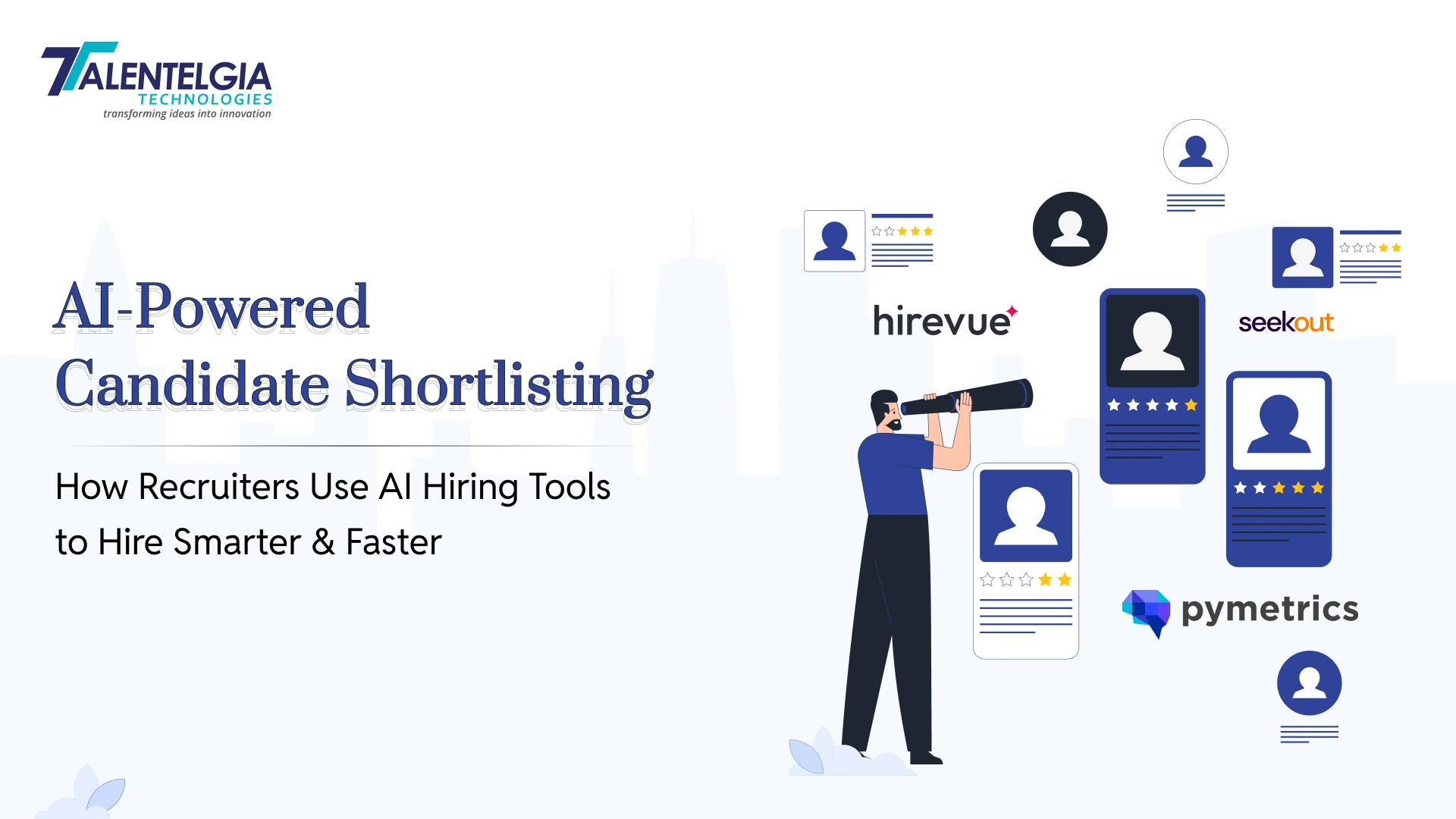
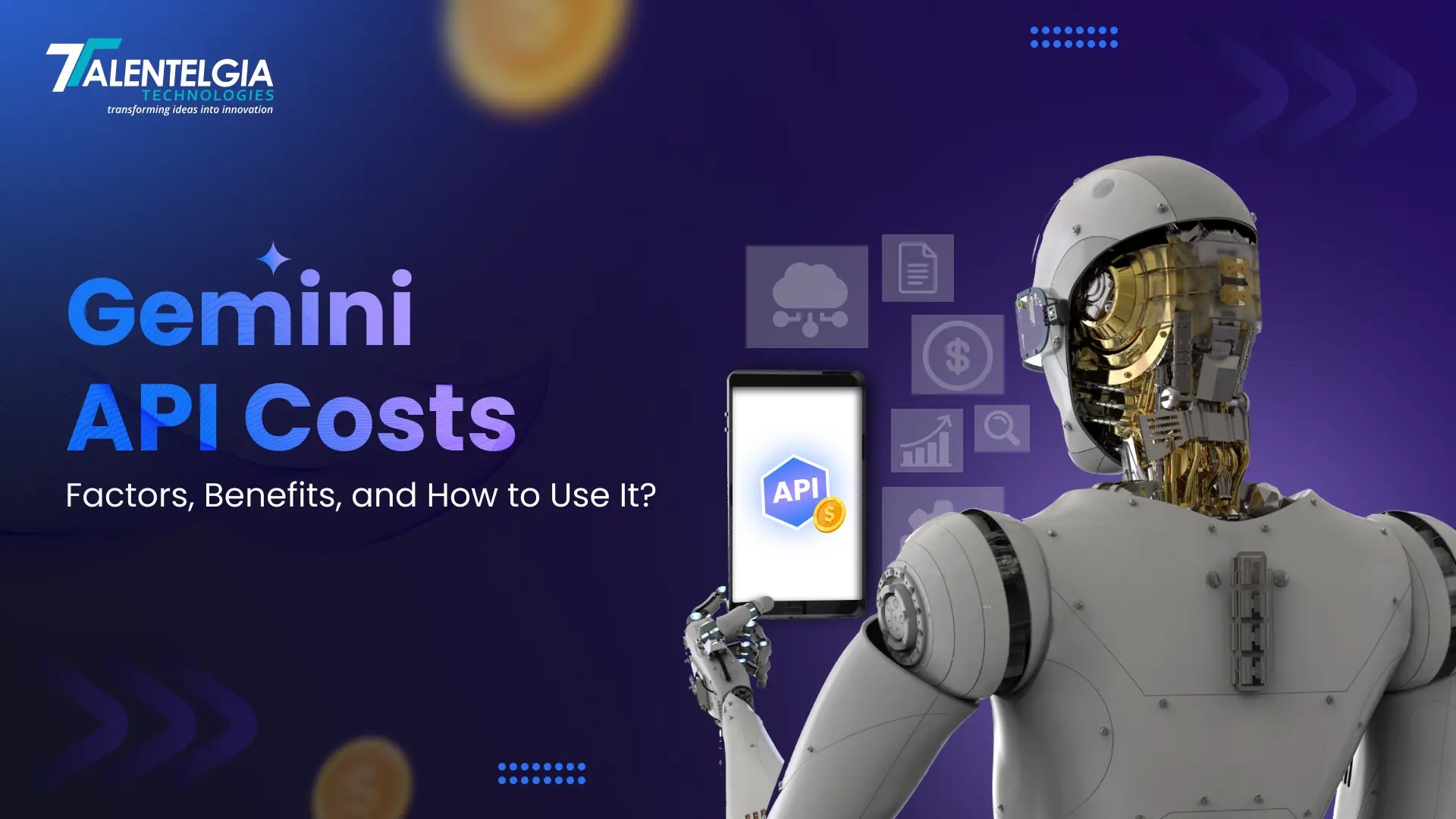

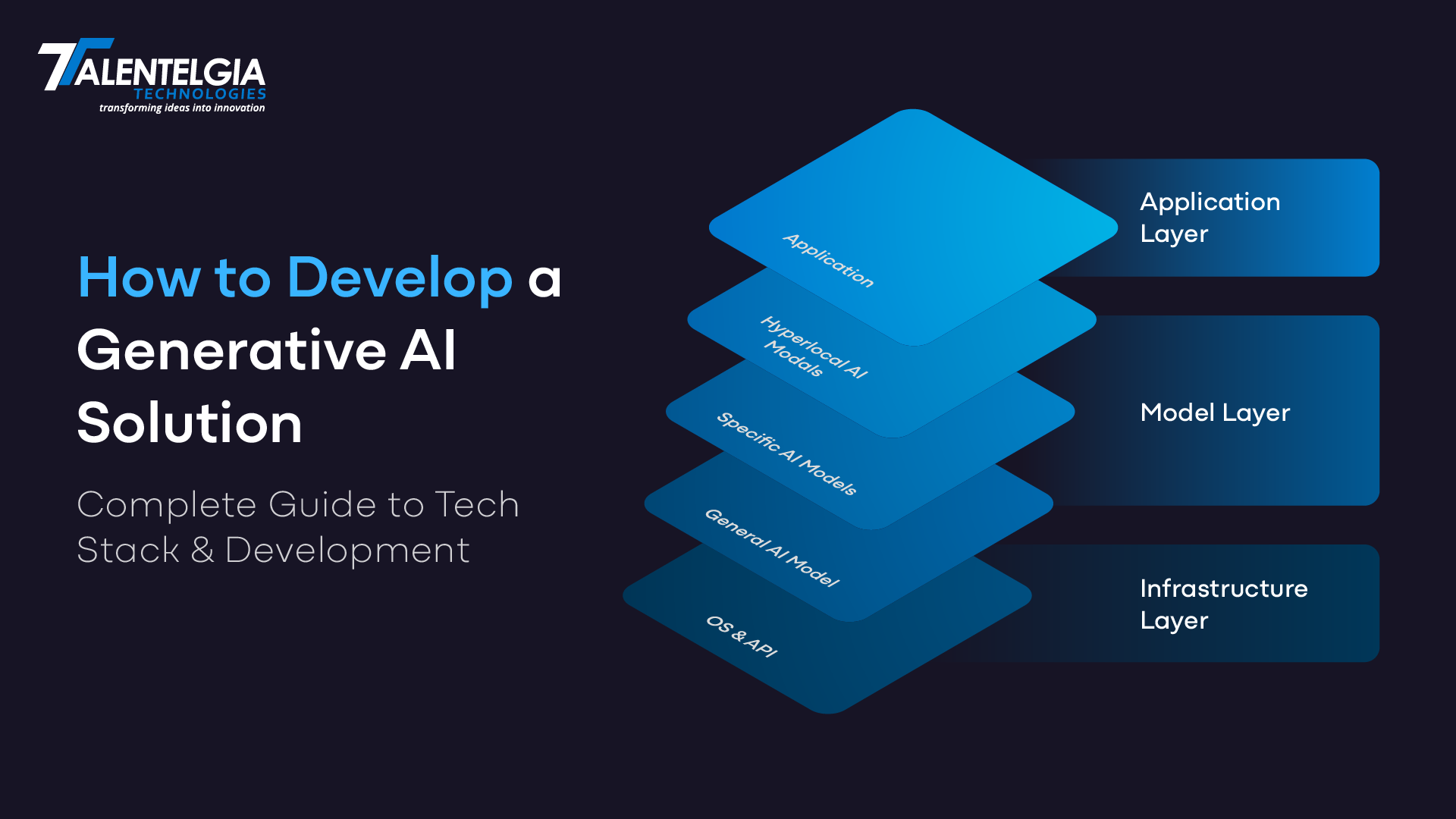
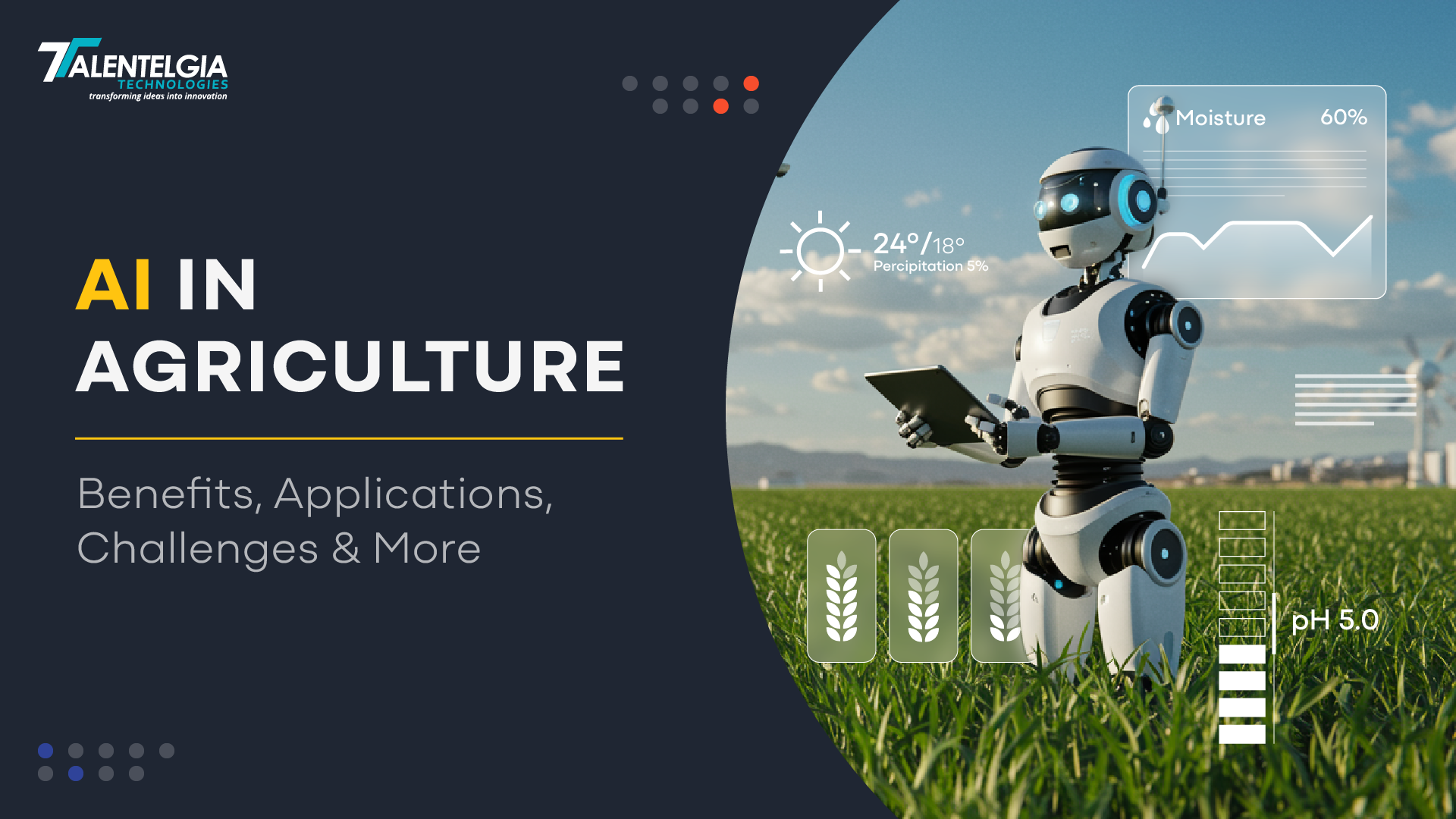











 Write us on:
Write us on:  Business queries:
Business queries:  HR:
HR: 




